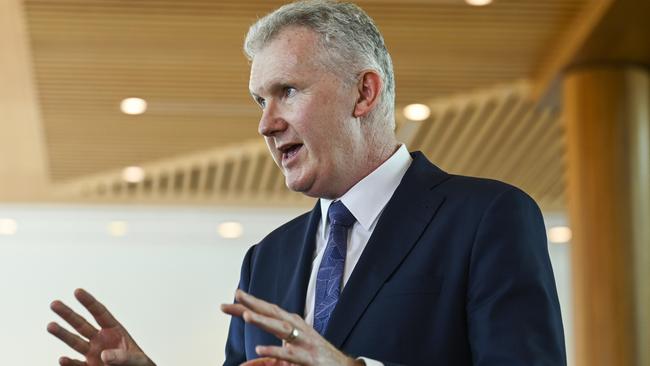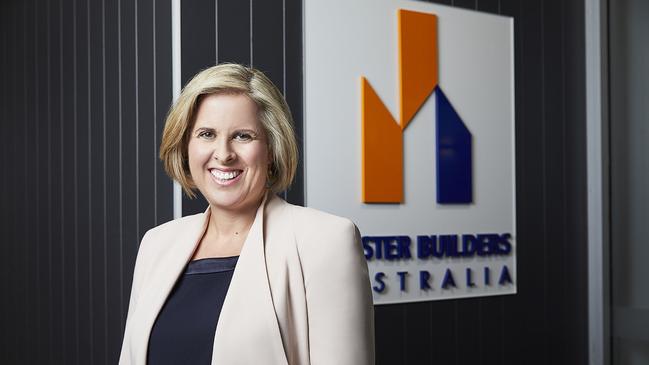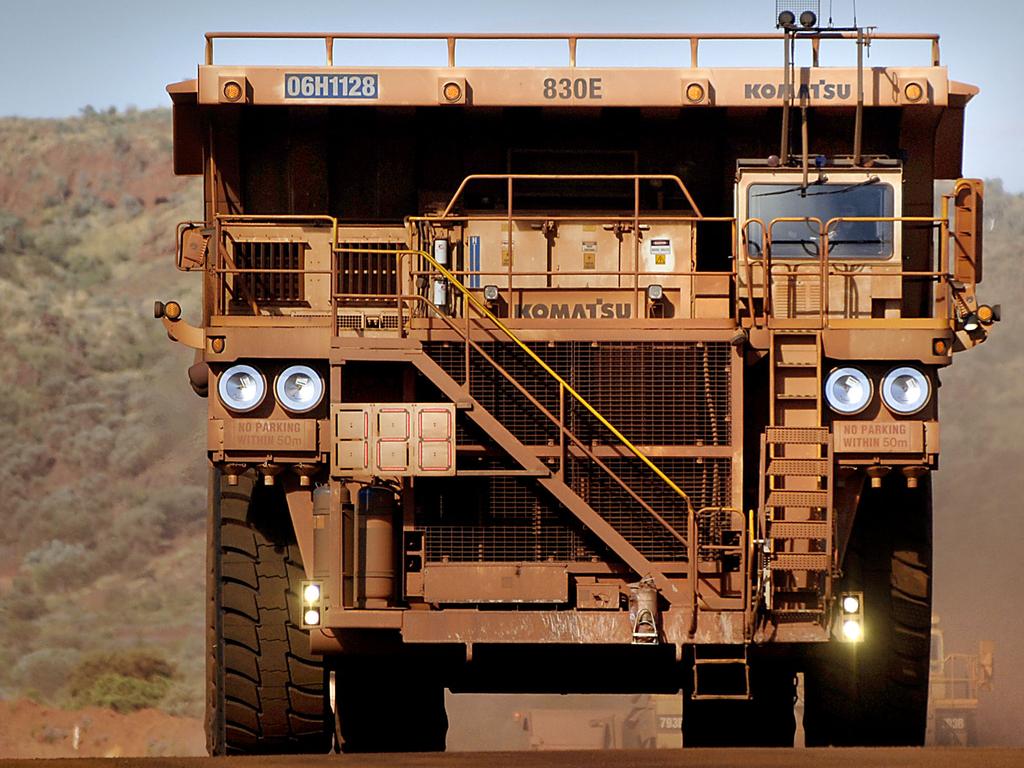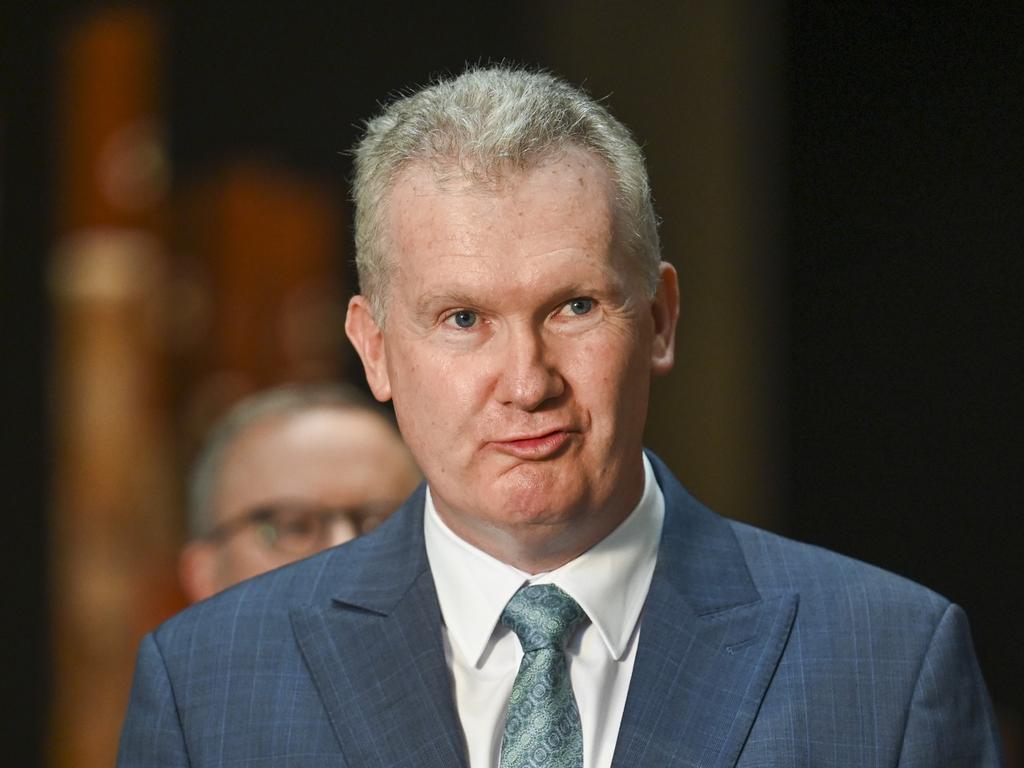Builders, miners unite for war with Albanese government over industrial relations
Industry groups attack the Albanese government’s consultation to date on proposed work changes as a ‘sham’ and ‘false’.

The building and mining industries will wage war against the Albanese government if it bends to union pressure and captures self-employed tradies, truckies and engineers under its second wave of industrial relations reforms.
In a rebuke of the government’s claims it has broadly consulted industry over its proposed changes to employee-like forms of work, the peak building and mining lobby groups attacked the consultation to date as a “sham” and “false”.
Master Builders Australia warned that employee-like measures outlined in the government’s consultation paper “represent one of the most significant and real attacks on the rights of self-employed and independent contractors, including over 264,000 self-employed tradies”.
In its submission to the Department of Workplace Relations, the Minerals Council of Australia said expanding Fair Work Commission powers to set minimum standards for independent contractors would “discourage businesses from engaging self-employed tradespeople, engineers, drivers and other professionals”.
While the Albanese government has said its IR reforms in the second half of the year would focus on the rights of gig-economy workers, employers have raised concerns about the definition of “gig economy” and whether employee-like rules could be extended across the board.
With about 20 per cent of the $245bn building sector’s 1.3 million workforce classified as self-employed tradies, MBA chief executive Denita Wawn said there would be “dramatic, massive, adverse implications” if the IR changes were applied to construction.
“There hasn’t been consultation. We talk about sham contracting … from our perspective this has been sham consultation,” Ms Wawn said.
“We are seeking clarity from government that if they don’t intend for it to cover building and construction they make very clear representations publicly.
“Until that time, we will continue to campaign hard on the fact that this is totally inappropriate for our sector.”
In its submission, MBA said independent contractors should have the right to choose the hours they work, what projects they work on and be allowed to negotiate their own fees and conditions.
If self-employed tradies were captured, it would “fundamentally upend and damage the entire building and construction industry which is founded upon a model of specialist contract work arising from the way in which building work is performed”, it said.
“It would create a range of negative impacts for the community and consumers and introduce a significant amount of uncertainty and commercial risk in circumstances that are simply unnecessary.
“Such outcomes could not come at a worse time for building and construction which, after years of disruption and uncertainty, continues to experience a range of growing industry pressure points against a backdrop of general economic uncertainty and growing inflationary concerns.”

The Minerals Council – whose members include BHP, Rio Tinto, Glencore, Whitehaven and Energy Australia – “strongly opposes any proposal that would extend the scope of the FWC power to set minimum standards to an open-ended range of independent contractors, including those that do not engage in work through a digital platform”.
The Australian revealed in January that enabling the FWC to set minimum standards for transport workers could resurrect the powers of Labor’s Road Safety Remuneration Tribunal.
The MCA said the “worst possible approach would be to reintroduce anything akin to the RSRT, which was abolished in 2016 and had sought to render unviable an entire industry of owner-driver contractors”.
“It is essential that any new form of regulation does not discriminate against one form of work by imposing unfair restrictions,” it said.
The MCA – which along with other groups raised concerns about multi-employer bargaining reforms passed through parliament last year – warned that changes to the workplace relations system that created additional uncertainty and complexity would “cement Australia’s unfortunate international standing as a
high-cost jurisdiction with complex workplace relations laws that are difficult to comply with”.
The government’s discussion paper says the FWC could be directed to “make minimum standards in respect of, but not limited to: workplace conditions, such as portable leave, rest breaks … (and) training and skill development”. Unions are lobbying for “portable long-service leave and income protection entitlements” for workers who move between employers.
Workplace Relations Minister Tony Burke last month told The Australian the government was “on the side of ending the race to the bottom on wages and conditions”.
“This year we decide whether we’ll continue to be a country where workers in areas like food delivery can be paid less than the legal minimum based on an archaic idea that only employees are allowed to have minimum standards,” Mr Burke said.
The government last month released a series of IR reform consultation papers focused on Same Job, Same Pay, employee-like forms of work and providing stronger protection for workers against discrimination reforms.
Asked about Same Job, Same Pay, which is aimed at cracking down on businesses using labour hire firms to pay workers less than permanent staff, Mr Burke said “there’s a whole lot of consultation happening in terms of transition as to how you phase this, how you do it”.
“We haven’t landed on any of those decisions. But the principle that we took to the election is the principle we intend to legislate,” he told Sky News.








To join the conversation, please log in. Don't have an account? Register
Join the conversation, you are commenting as Logout